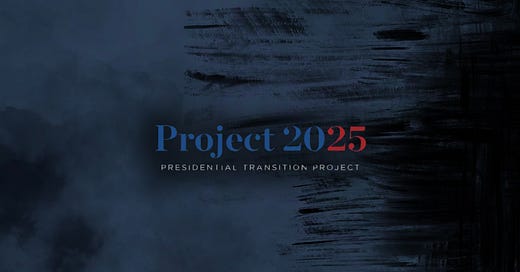Project 2025 proposes to make private Medicare plans, also known as Medicare Advantage (MA) plans, the default enrollment option for beneficiaries. Similar to Trump-era programs that automatically enrolled beneficiaries in privatized Medicare programs known as Direct Contracting Entities, Project 2025 would shuttle seniors and people with disabilities into private Medicare very quickly.
Given the importance of Medicare to the overall health and well-being of the people of the United States, it's important to understand how this forced migration of almost all beneficiaries into privatized Medicare Advantage plans would affect the future of the program. Extrapolating upon the projections of the Medicare Trustees based on the current flux of people in Medicare and Medicare Advantage, shifting 100% of beneficiaries into Medicare Advantage would bankrupt the Hospital Insurance Trust Fund within 5 years.
Though MA was originally cast as a cost-saver, the Medicare Payment Advisory Council found that payments to MA insurers are 22% higher than they are for similar patients in traditional Medicare. Unfortunately, this higher spending does not lead to better health outcomes; it just results in billions of dollars in profits for Big Insurance. The higher cost of MA compared to traditional Medicare means that carrying the strategy of Project 2025 to its possible endgame, if all Medicare beneficiaries are compulsorily enrolled in a private plan, the Medicare Trust Fund will immediately go into deficit spending. By 2030 the Medicare Hospital Trust Fund would run out of funds and become insolvent, disrupting the health care of more than 60 million seniors and people with disabilities unless Congress intervened in ways the authors of Project 2025 didn’t bother to call out. Ten years of Project 2025’s policy of all beneficiaries being in MA plans would cost taxpayers an additional $1.5 trillion.
And all for providing care that is not on par with traditional Medicare.
Instead of improving Medicare, an overwhelmingly popular program, Project 2025, would dismantle the program quicker than many even thought possible. In a post-solvency world, Medicare would either become a fully privatized system, turning beneficiaries into revenue generators for earnings reports to Wall Street, or require hefty increases in deductibles, premiums, copays, and taxes. Either way, the result would be little to no health coverage for our most vulnerable communities, and worse care for everyone.
Medicare turns 60 next year. The implementation of Project 2025’s health care agenda would leave the program careening toward full privatization. A more prudent approach would be to stop the $140 billion in overpayments to Medicare Advantage insurers each year and use the savings to improve the traditional Medicare program. Instead of sending those billions to insurance corporation shareholders, use it to expand coverage in traditional Medicare to include dental, vision and hearing care and establish an out-of-pocket cap that our seniors and disabled citizens can afford.






Disagree. What we should do is break up these big insurance companies in lieu of a fully automated process with no coding, no adjudication and built in patient education; a holistic approach to the problem, instead of big business dictating prices and care.
Now that you have done a wonderful way of scaring the senior population, understand that NO political party has endorsed this approach. The Republicans have denied this on multiple occasions
I am highly disappointed in your veiled partisan approach